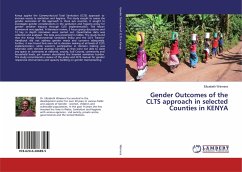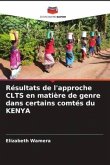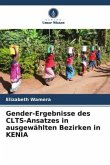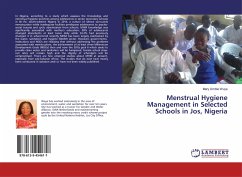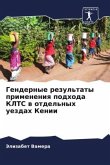Kenya applies the Community-Led Total Sanitation (CLTS) approach to increase access to sanitation and hygiene. This study sought to assess the gender outcomes of this approach in three sub counties. It sought to investigate gender considerations in the sanitation and hygiene policy for gender sensitive impacts through CLTS implementation. The Moser Framework was applied. A literature review, 3 Focus group discussions and 12 key in depth interviews were carried out. Quantitative data was collected and analysed. The data was presented in tables. The study found that the Kenya Environmental Sanitation Policy and the CLTS Trainers' Handbook did not address gender needs and concerns adequately. Further, it was found that men led in decision making at all levels of CLTS implementation, while women's participation in decision making was tokenistic with minimal strategic benefits, as they were not able to claim any space or autonomy at national, county, Sub County, community and household levels, yet women shouldered the heaviest sanitation burden. The study recommends a review of the policy and CLTS manual for gender responsive interventions and capacity building on gender mainstreaming.
Bitte wählen Sie Ihr Anliegen aus.
Rechnungen
Retourenschein anfordern
Bestellstatus
Storno

